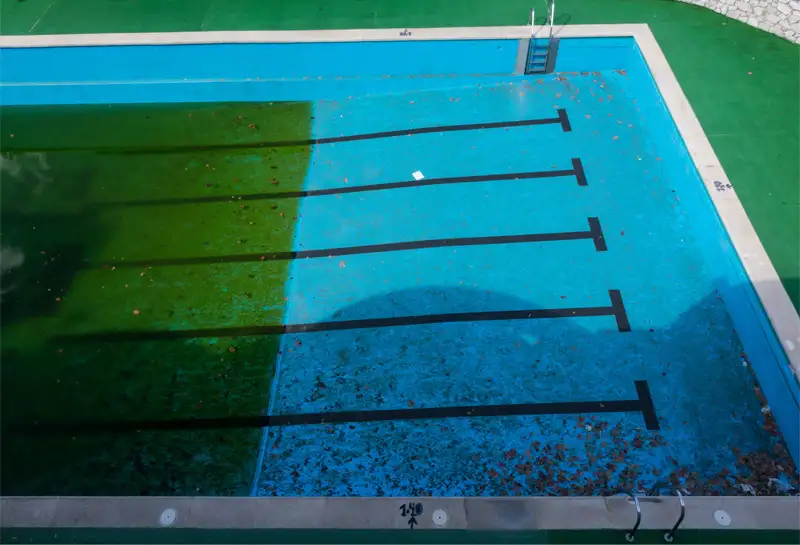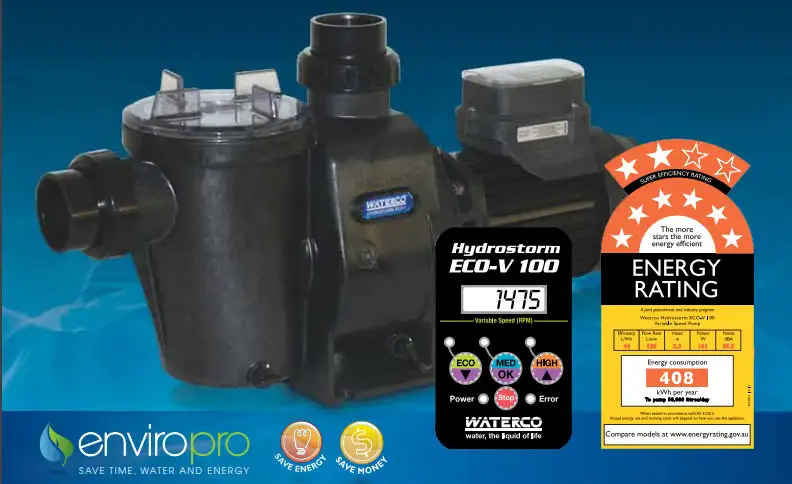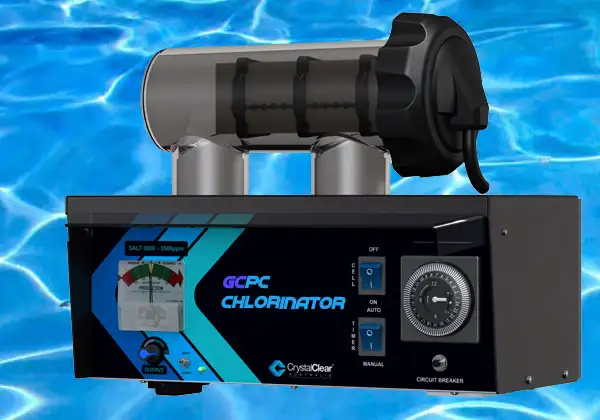A Guide to Recovery
The recent unprecedented storms in the Gold Coast area of Queensland have left thousands without power for days, creating chaos and frustration among residents. The aftermath of such severe weather not only affects homes and businesses but can also have a significant impact on swimming pools. In this article, we’ll explore how excessive rain, power outages and storm damage can affect your pool and pool water. Additionally, we’ll discuss how Gold Coast Pool Cleaning can help residents get their pools back on track and the methods employed to maintain a safe and clean swimming pool.
The Toll on Power and Pool Equipment:
The prolonged power outages caused by the recent storms mean that many homes are without electricity, affecting various essential systems, including pool equipment. Without power, pool pumps are unable to filter water and chlorinators are unable to produce chlorine. This disruption in the filtration and chlorination processes can lead to a decline in water quality, making the pool a breeding ground for bacteria and algae.
Effects of Excessive Rain on Pool Water:
The heavy rainfall recorded in the Gold Coast area, with some locations experiencing up to 300mm in just 12 hours, can wreak havoc on pool water chemistry. Excessive rainwater introduces organic debris, contaminants and dilutes the pool’s chemical balance. This can result in cloudy water, increased algae growth and the potential for harmful microorganisms to thrive.

How Gold Coast Pool Cleaning Can Help:
Gold Coast Pool Cleaning understands the challenges faced by pool owners during severe weather events. Their professional services can assist in restoring and maintaining your pool even in the aftermath of storms. Here’s how Gold Coast Pool Cleaning can help:
1. Emergency Cleanup:
Gold Coast Pool Cleaning provides emergency cleanup services to remove debris, leaves and other contaminants that may have entered the pool during the storms. This helps prevent further damage and promotes quicker recovery.
2. Water Testing and Balancing:
The experts at Gold Coast Pool Cleaning conduct thorough water testing to assess the chemical balance of the pool water. They then balance the pH, chlorine levels and other essential parameters to ensure the water is safe and clear.
3. Equipment Inspection and Repair:
In cases where storms may have caused damage to pool equipment, Gold Coast Pool Cleaning offers inspection and repair services. This ensures that the filtration system and chlorinator are functioning optimally.
4. Algae Treatment:
If the pool water has turned green due to algae growth, Gold Coast Pool Cleaning employs effective algae treatment methods to eliminate the infestation and restore the water’s clarity.
Maintaining a Safe and Clean Swimming Pool:
Beyond recovery efforts, maintaining a safe and clean swimming pool requires proactive measures, especially during storm seasons. Consider the following tips:
1. Regular Maintenance:
Schedule regular pool maintenance with Gold Coast Pool Cleaning to keep your pool in top condition. This includes routine cleaning, water testing and equipment checks.
2. Storm Preparation:
Before a storm hits, secure pool furniture and accessories to prevent them from becoming projectiles. Consider using a pool cover to reduce the influx of debris.
3. Quick Response to Issues:
Address any pool related issues promptly. If you notice changes in water clarity or suspect equipment malfunctions, seek professional assistance from Gold Coast Pool Cleaning.
Conclusion:
Severe storms can leave a lasting impact on your swimming pool, affecting both water quality and equipment functionality. Gold Coast Pool Cleaning is your reliable partner in ensuring a swift and effective recovery process. By following their expert guidance and adopting proactive measures, you can enjoy a safe and clean swimming environment, even in the face of unpredictable weather conditions.

Steps to take before and after a storm to protect your swimming pool.
A: Secure loose items, such as pool furniture and accessories, to prevent them from becoming projectiles. Consider using a pool cover to minimize debris entry during the storm.
A: Yes, it’s advisable to turn off pool equipment to prevent potential damage during power surges. Ensure all electrical components are safely shut down.
A: Use a sturdy pool cover to minimize debris entry. Additionally, prune nearby trees and plants to reduce the risk of branches falling into the pool.
A: No, it’s best to turn off the pool pump during a storm to avoid electrical issues and potential damage. Resume normal operation once the storm has passed.
A: Add extra pool chemicals to maintain the water’s chemical balance. Monitor pH and chlorine levels before and after the storm, and adjust as needed.
A: No, it’s not recommended to drain your pool completely. A partially filled pool helps balance hydrostatic pressure and prevents damage to the pool structure.
A: Cover your pool’s filtration system with a secure, weather-resistant material. Turn off the power supply to the system to prevent electrical damage.
A: Conduct a thorough visual inspection, remove any debris manually, and use a pool net or vacuum to clear remaining debris from the water.
A: It’s advisable to wait until the water clarity is restored and the chemical balance is back to normal before resuming pool use.
A: Perform a comprehensive check immediately after the storm and continue periodic inspections for a few weeks to ensure no hidden damage surfaces over time.










